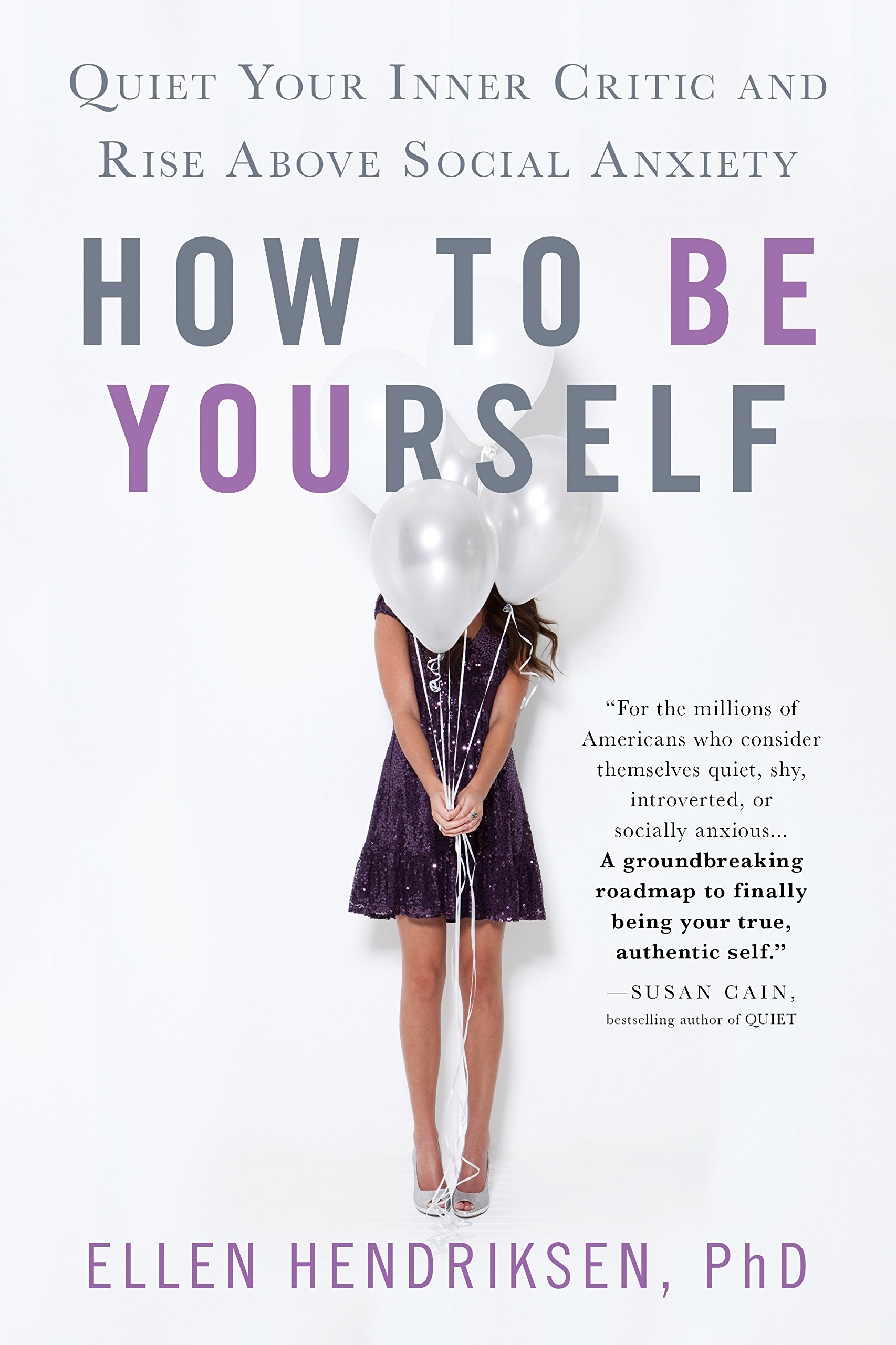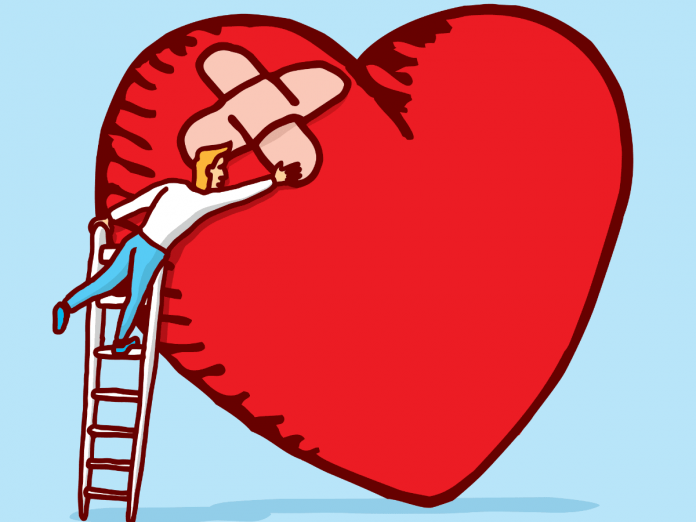4 Ways to Heal Your Broken Heart
Heartbreak hurts, plus it affects our judgment. Suddenly, driving by our ex’s house “just to see,” posting overwrought poetry on our blog, and a six-pack nightcap all seem like good ideas. Is there a quicker and healthier way to make it through the heartache?
If we want to know the three emotional stages of being dumped, we could ask scientists who study what’s technically called “relationship dissolution.” But we’d get an equally accurate description from pop songs of any decade.
Buy Now

Let’s call the first stage “protest.” There’s disbelief, anger, outcry. Depending on our age, we play “Go Your Own Way,” “Song for the Dumped,” or “Sorry Not Sorry” on repeat. We spend a lot of time pretending not to care. We fantasize equally about revenge and getting back together.
Next comes despair. This is when it finally sinks in. It’s over. We feel sad, hopeless, lethargic. A pint of ice cream passes as dinner. We cry into our journal or on our most patient friend’s shoulder. The song on repeat changes to “The Tracks of My Tears,” “Nothing Compares 2U,” or “Someone Like You.”
But then, there’s recovery. We get off the floor, shave our legs or our scruffy facial hair, head back to the gym, reactivate our eHarmony profile, and genuinely move on. No more songs on repeat. We’re off the couch and back into life.
But what do we have to do to arrive intact at that last stage? In the aftermath of a breakup, it feels like we’ll never be ourselves again. But have hope. By request from listener Thy, here are four ways to pick ourselves off the floor and move on.
4 Ways to Heal a Broken Heart
- Actually break up.
- Feel what you feel.
- Rebound for the right reasons.
- Remember (and build) on who you are.
Let’s explore each in more detail.
Tip #1: Actually break up.
Interestingly, recovery from a breakup depends not on how much you loved each other, how long you were together, but instead, to what extent you accept the breakup.
Once you truly accept that the two of you are no longer together, you can move on in a calm, clear-thinking way.
But understandably, it’s really hard to accept that a relationship is over.
One thing that can help achieve this is a clean break. Go cold turkey. Truly step out of the relationship, even though it’s painful. Go no contact, at least for awhile. Why? Like that one Yoda meme says: “If onto your ex’s Facebook page you go, only pain you will find.”
So go ahead and unfollow and unfriend. It’s OK to delete their contact info. It’s not immature; it’s protective. Remove the temptation, at least for now. You can always add it back after your broken heart has healed.
No contact is really hard because it generates a lot of negative emotion in the short term—it cuts off hope that our ex will change their mind. It makes us pre-emptively jealous—what if they’re moving on and we’re not? Plus, there’s often an urge to break the rules—to sneak a peek on social media, to hang out just this once, which inevitably leads to having sex even though you know you shouldn’t.
Speaking of sleeping with an ex, the science on this is counterintuitive, at least at first.
Here’s what I mean: a study out of the University of Arizona found that for exes who can’t move on, sex with an ex made them feel better. This makes sense: sex is a sign that there’s still hope. When we’re heartbroken but our ex is still willing to sleep with us, we take it to mean all is not lost.
Therefore, it makes sense that in the study, participants who couldn’t move on and weren’t getting post-breakup booty bumping felt worst of all.
Essentially, in the wise words of Dua Lipa, if you’re under him, you ain’t getting over him. If your partner isn’t over you either, at least you’re both in the “It’s Complicated” boat together. But if one of you knows you’re never, ever getting back together and the other still has hope, don’t string them along—it’s not fair.
To sum it up, no-contact is only needed if you’re having trouble moving on. If you truly accept that the relationship is over—you feel whole, free, relieved, and able to move on without them—then staying friends is fine and healthy. But if you’re stuck in can’t-accept-it, please-come-back breakup purgatory, for your own health, your next stop should be no-contact.
Does this mean no contact forever? Of course not. No contact is hardest up front, but then it pays off. Like heartbreak in general, it gets easier.
Tip #2: Feel what you feel.
So far, we’ve mostly been talking about behavior: social media stalking, sex, texting. But what about emotion? Breakups hurt. A lot. For better or worse, the way to get over a breakup is to go through the pain. It’s hardest at first, which isn’t fun and isn’t fair—why should the hardest stuff come frontloaded, before we’ve warmed up or practiced?
But know that it’s okay to feel angry. It’s safe to be sad. It’s okay to ugly cry, rail at the unfairness of being dumped, or hate them and miss them at the same time.
Just don’t let your feelings cross the line into behavior—don’t key their car, post revenge porn, or boil their bunny—it doesn’t help, plus it makes you look unstable.
Thankfully, feeling bad doesn’t last forever. Timelines are different for everyone, but one study that followed college students after a breakup found that anger dissipated within 7-18 days after the breakup, while sadness declined slowly over the course of a month.
Tip #3: Rebound for the right reasons.
Rebound relationships have a bad reputation, but a 2015 study found that getting into a new relationship quickly can actually be healthy. A rebound can make you feel more confident and desirable when you need it most, and can help create a much-needed sense of resolution. It’s an example of putting behavior before thinking in the best possible way—when you see yourself getting into a new relationship, you think, “Well, I guess I must be over my ex, or I wouldn’t be doing this.” What’s more, in the study, the faster the participants got into a new relationship, the greater the boost.
But “why” is key for a rebound. No-no’s include getting into a rebound relationship as revenge, as a way to force yourself to heal, or, if they remind you of your ex, as a substitute for your old relationship.
Rebound relationships can be ideal if they help you bounce back from feeling rejected and worthless—there’s nothing like feeling attractive and in-demand when you’re a bit shaky.
But rebound relationships can be ideal if they help you bounce back from feeling rejected and worthless—there’s nothing like feeling attractive and in-demand when you’re a bit shaky. And they’re especially helpful if your previous relationship was bad. So if you’re like Kelly Clarkson and can breathe for the first time after your breakup, go ahead and rebound.
Tip #4: Remember (and build) on who you are.
When a relationship falls apart, we simultaneously fall apart as individuals. When you build a life with a partner, they naturally become your go-to confidante, companion, and supporter. When you break up, you lose their knowledge of how to make the perfect smoothie, their razor-sharp sense of direction, their pestering you to exercise, and their ability to make you laugh even when you’re grumpy. Therefore, something called self-contraction happens after a breakup—it means gaps appear in your knowledge base, resources, and sense of self.
The antidote is to expand again. Get out there, not necessarily dating, but simply doing stuff. Do things you used to love but might have let go of. Try things you’ve been meaning to try for years. Meet new people, to date or simply to hang out with. Indulge in post-breakup cliches like a new hairstyle, new bedsheets, or personal training sessions. Stay in and decorate your nest or go out and explore the world. Oh, and try out some killer smoothie recipes.
No two ways about it, breakups are the worst. But you know what they say about what doesn’t kill you. Hey, someone should write a pop song about that.

For free, helpful downloads to fight social anxiety and be your authentic self, visit EllenHendriksen.com.
Image of mending heart © Shutterstock
Want more Savvy Psychologist? Subscribe below.







